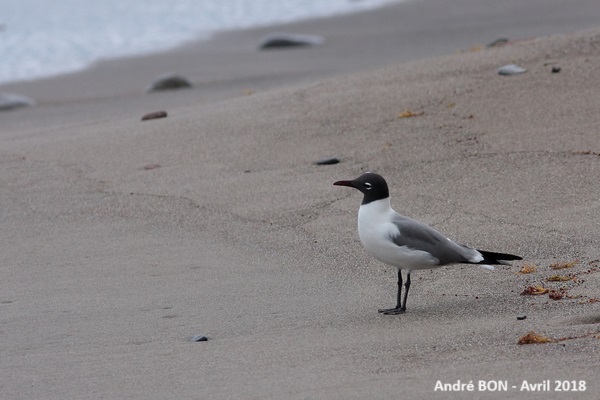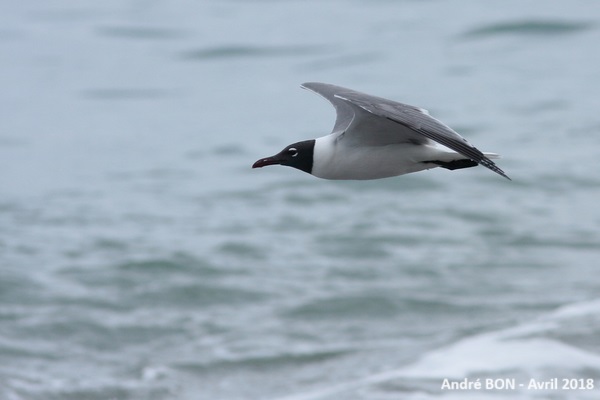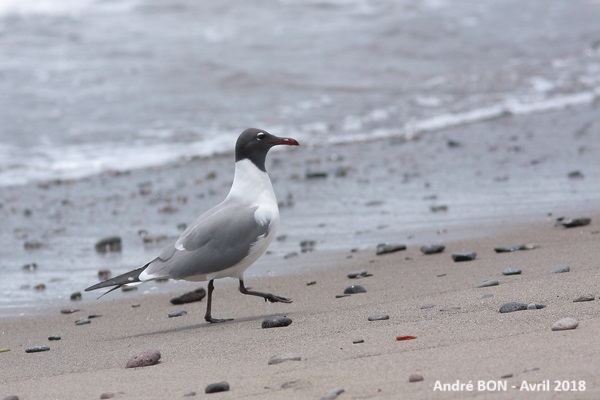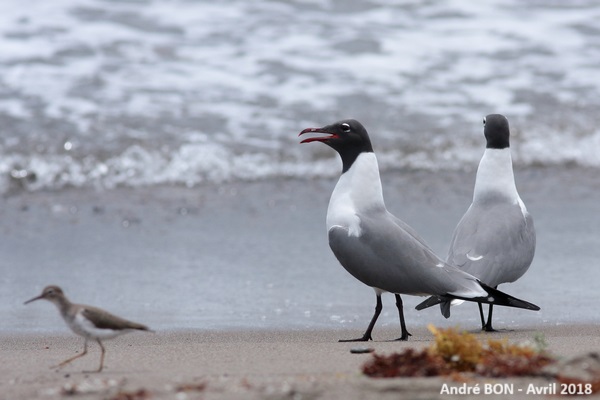



| Laughing Gull (Leucophaeus atricilla (Linnaeus, 1758)) |




|
|
Scientific name: Leucophaeus atricilla (Linnaeus, 1758) Common name: Laughing Gull French name: Mouette atricille Order: Charadriiformes Family: Laridae Size: Body size: 36 to 41 cm; Weight: 200 to 375 g; Wingspan: 98 to 110 cm. Habitat: Rocky, sandy or muddy coastal marine areas, sometimes along rivers but always close to the sea. Food: Aquatic invertebrates, crustaceans, fish and detritus. It can also attack the eggs and chicks of other birds. Nesting: The Laughing Gull nests on the ground in large colonies. There are two to four eggs per clutch between April and July. Migration: Partially migratory. Only the northernmost birds move south in winter. Geographic area: Atlantic coasts of North America, West Indies, northern South America. |
In breeding plumage, the Laughing Gull has a black head, legs and tips of wings and tail. The bill is dark reddish. The eye is bordered by two small white crescents. The back and wings are grey. The chest, nape and belly are white. In winter plumage the head turns white and the bill turns black. Juveniles are spotted. |
| [To know more about the Laughing Gull] [Next picture] [Top] |

|
Here is an Laughing Gull in breeding plumage with its black head and its eyes bordered by two small white crescents. |
| [To know more about the Laughing Gull] [Next picture] [Previous picture] [Top] |

|
In flight. |
| [To know more about the Laughing Gull] [Next picture] [Previous picture] [Top] |

|
These Laughing Gulls were observed after a seine fishing session. They came to feed on the remains on the beach. |
| [To know more about the Laughing Gull] [Previous picture] [Top] |

|
You see here that the Laughing Gull and the Spotted Sandpiper do not play in the same weight category! |